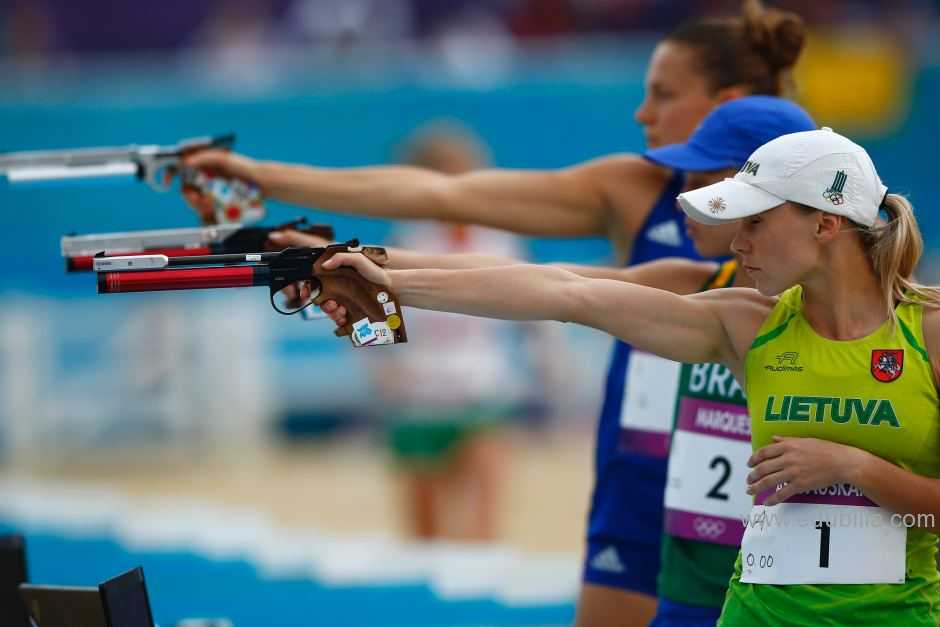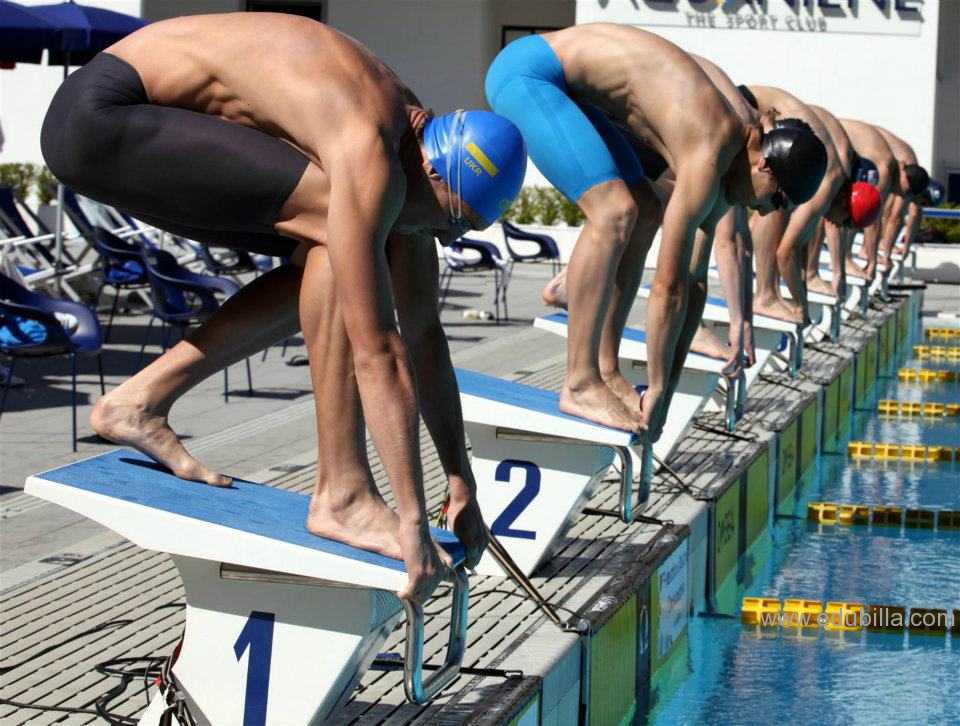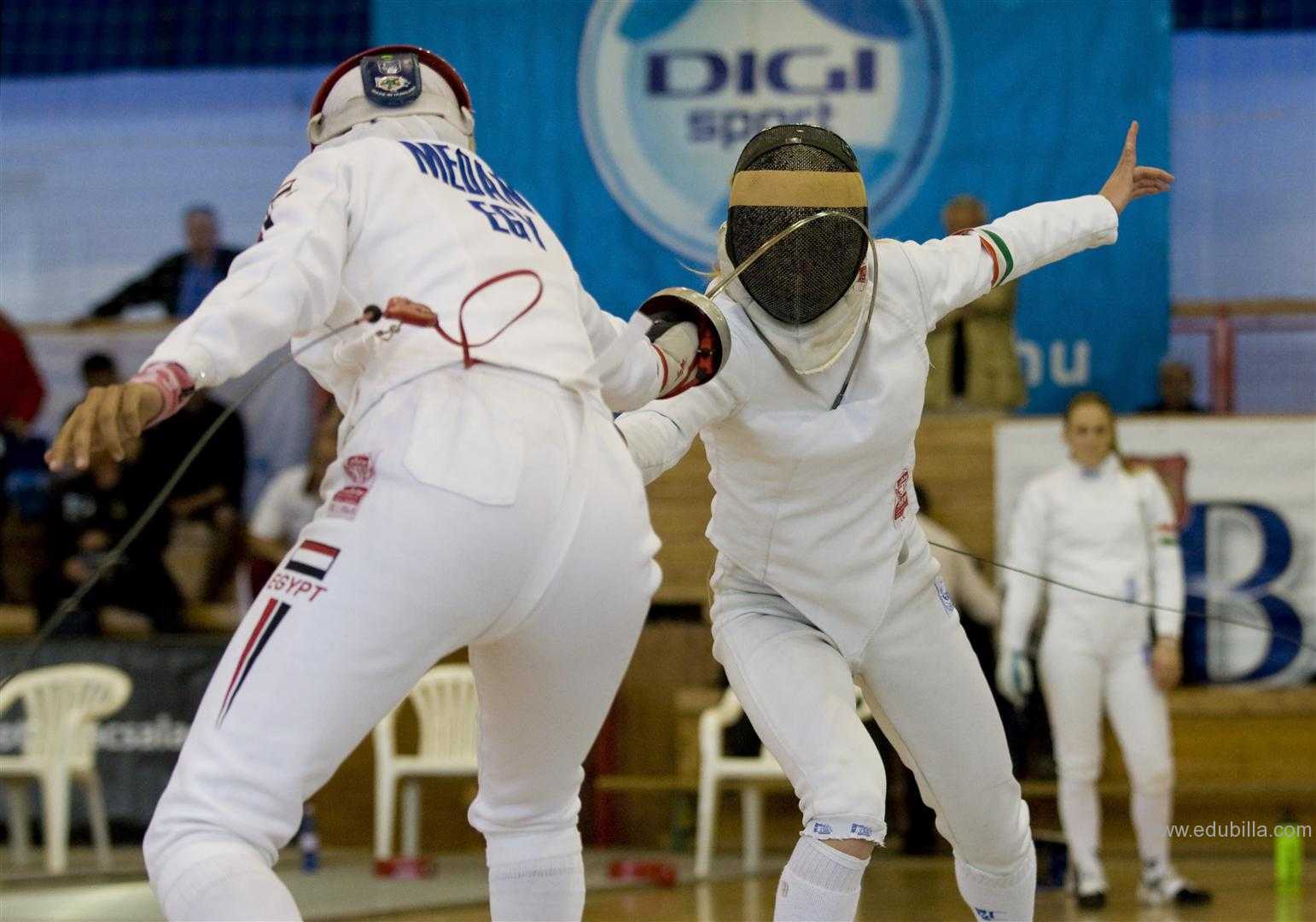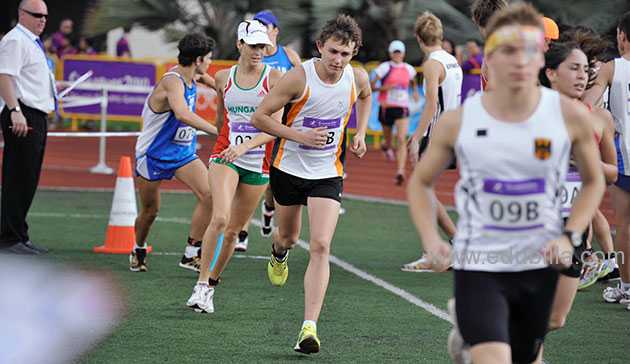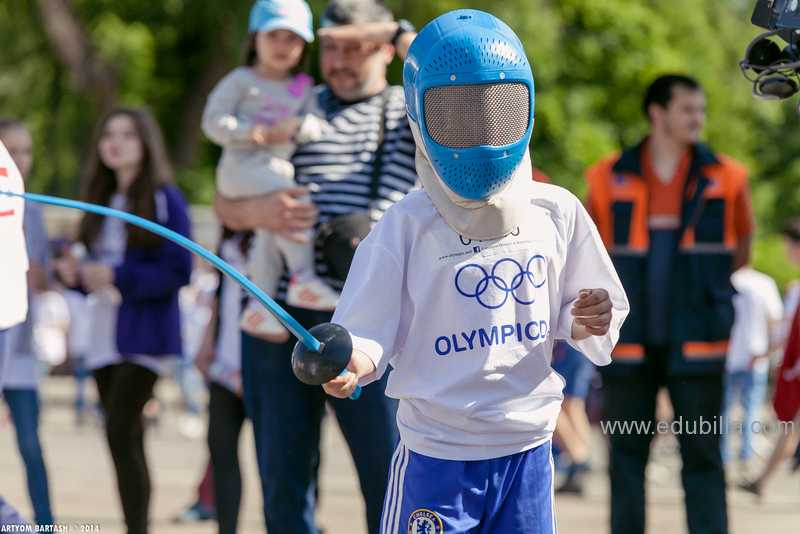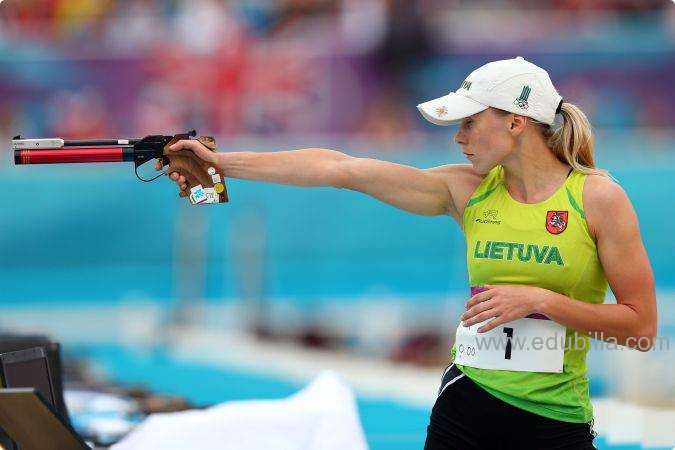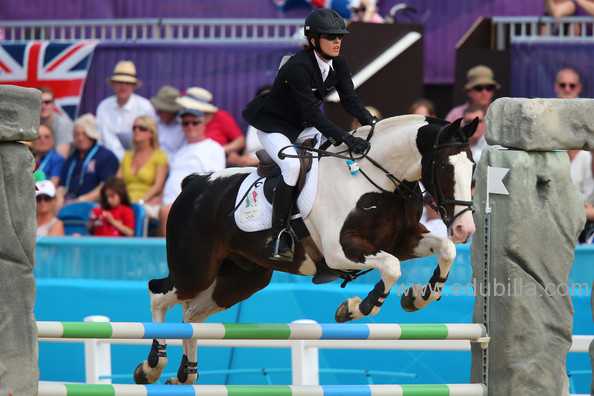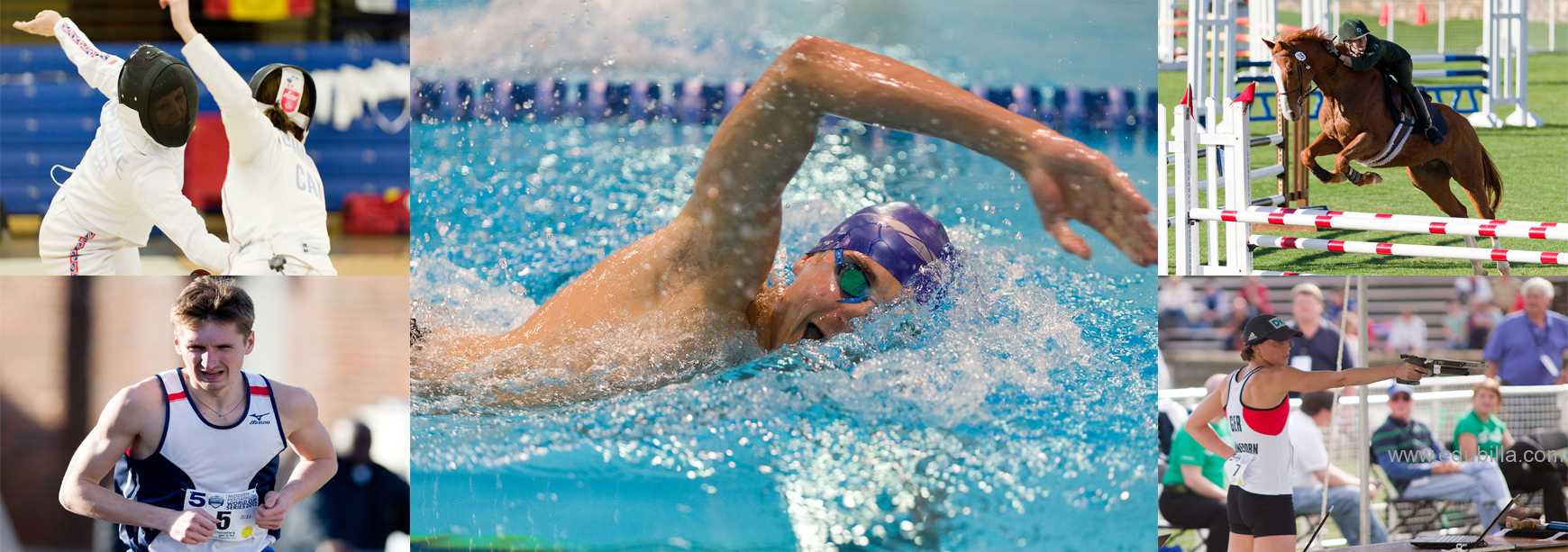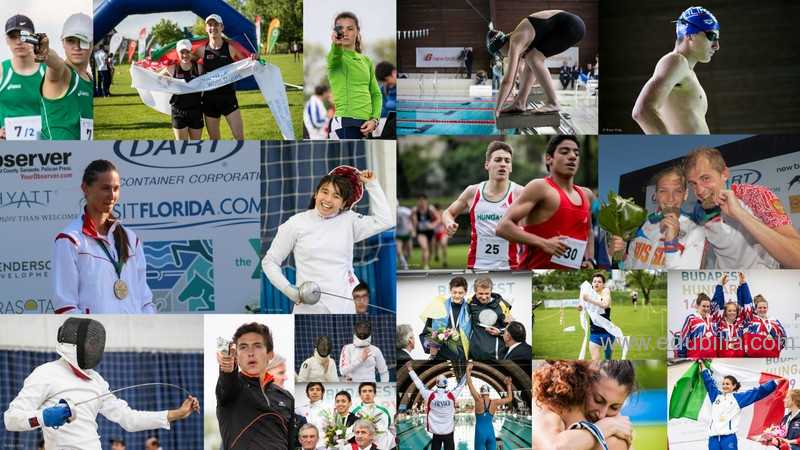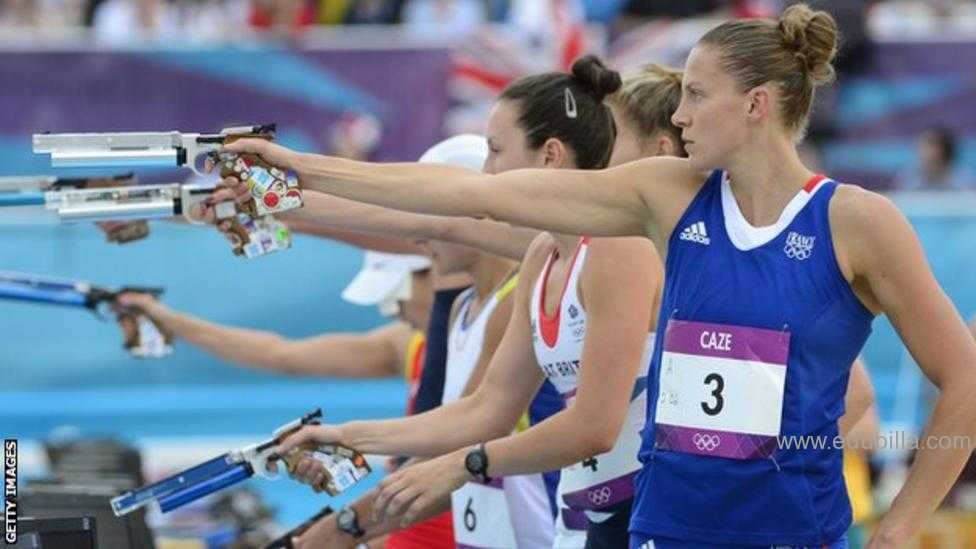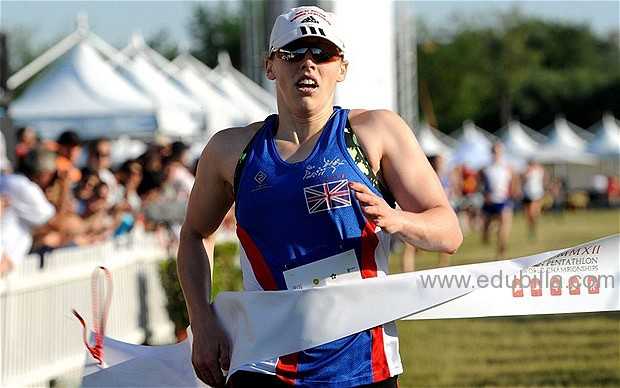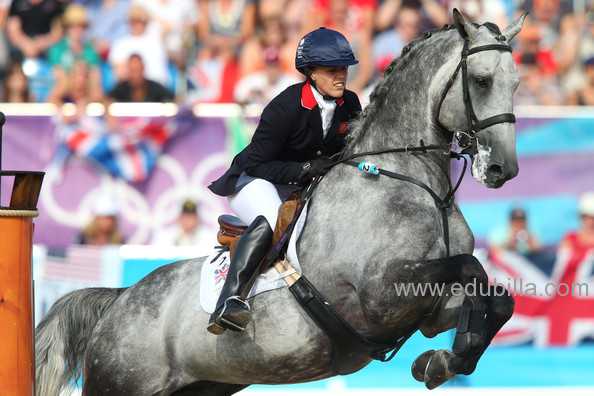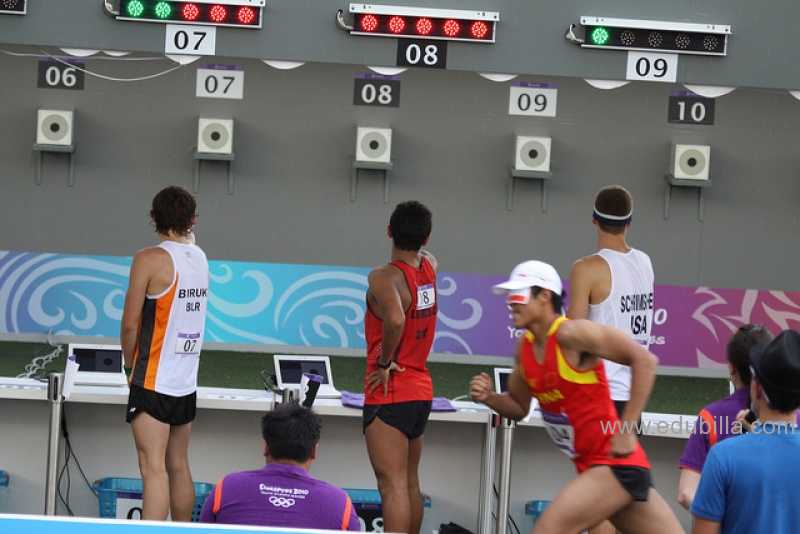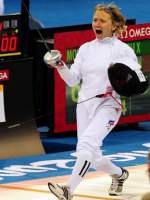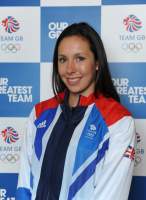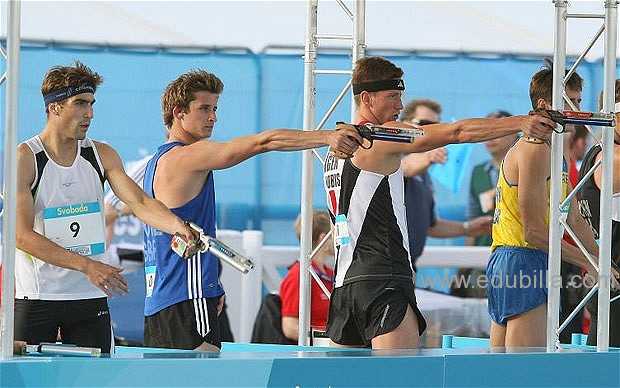
Overview Of Modern Pentathlon
A pentathlon is a contest featuring five events. The name is derived from Greek: combining the words pente (five) and -athlon (competition) . The first pentathlon was documented in Ancient Greece and was part of the Ancient Olympic Games. Five events were contested over one day for the Ancient Olympic pentathlon, starting with the long jump, javelin throwing, and discus throwing, followed by the stadion (a short foot race) and wrestling. Pentathletes were considered to be among the most skilled athletes, and their training was often part of military service—each of the five events in the pentathlon was thought to be useful in war or battle.
- Modern pentathlon used to be staged over four or five days, until Atlanta 1996, when it was compacted into one day of action
- Until London 2012, pistol shooting was the first event, then it was combined with running to form the final event
- Unlike equestrian events in which riders use their own horses, in modern pentathlon the athletes are allocated their rides through a draw on competition day
- Sheila Taormina (USA) was the first female to compete in 3 different sports at Olympic Games: swimming (1996), triathlon (2000 and 2004) and modern pentathlon (2008)
Game Rules
Fencing:
Athletes fence all other competitors once using electric epees. Bouts are fenced for one hit and last a maximum of one minute. Double hits don't count. If neither fencer has scored a hit within the time limit, a double defeat will be recorded.
New for the 2015 season, after the 'round robin' fencing there is a 'bonus round'. In this, the athlete who finished 36 in the round robin round fences the athlete in 35th place. Whoever wins that stays on the piste and fights the 34th athlete and so on. Athletes gain one additional point for each fight they win in the bonus round. No points are deducted for defeats.
Swimming:
A 200m freestyle swim, where the athletes are seeded in heats according their personal best times. A time of 2 minutes 30 seconds equates to 250 pentathlon points.
Riding:
Athletes ride unfamiliar horses over a series of 12 show-jumping obstacles. The leading athlete after the previous disciplines draws their horse by lot. On the basis of this draw, the other horses (which have been previously numbered) are allocated to the other competitors. The athletes have just 20 minutes in the warm-up arena over five practice jumps before coming out to compete.
Combined event (running and shooting):
The climax to the competition. The combined event uses laser technology and begins with a handicapped start, calculated on the basis of the results after the previous events. It is a two discipline event, where athletes run a total distance of 3200m (4 laps of 800m). The run is interspersed by shooting four sets of 5 laser targets. Only after having hit 5 targets with an unlimited number of shots OR after a time of 50 seconds can the competitor start from the firing point to perform each running leg of 800m. The first person to cross the line is the winner. A time of 13 minutes 20 seconds equates to 500 pentathlon points.
Rules in Detail
Fencing
Format:
An initial 'round robin' competition is held, followed by a 'bonus round'. The 'bonus round' is new for 2015.
'Round Robin'
- Pentathletes rotate around the fencing salle in pairs;
- Athletes fence all other competitors once using electric epees.
- Bouts are fenced for one hit and last a maximum of one minute.
- They must stay within the parameters of their fencing piste at all times during a bout.
- To win a bout, fencers must make contact with any part of their opponent’s body with the tip of the epee.
- A buzzer will sound when a hit has been made and a light on the scoreboard for that piste indicates who has won.
- Double hits are annulled, the system is re-set and the bout continues for the remainder of the minute.
- If neither fencer has scored a hit within the time limit, a double defeat will be recorded.
'Bonus Round'
- This part of the competition takes place on a single piste.
- The athlete finishing in 36th place after the round robin fights the athlete who was placed 35th. Whoever wins that bout stays on the piste and fights the 34th placed athlete and so on until the highest ranked athlete fights. Athletes are awarded a bonus point for each bout they win in this round. No points are deducted for losing a bout.
Scoring:
- In the initial round the value of a win varies with the number of competitors. Seventy per cent of bouts won corresponds to 250 pentathlon points. At an international with 36 competitors, this means 25 bouts won equates to 250 points with each victory or defeat worth 6 pentathlon points.
- Any points gained in the bonus round are added to the 'round robin' points.
Swimming
Format:
The swimming event is a 200 metre freestyle race - four lengths of the 50 metre pool.
Swimmers are seeded in heats according to their previous personal best times.
Scoring:
The times that the swimmers achieve are translated into pentathlon points. A time of 2 minutes 30 seconds equates to 250 pentathlon points. Every third of a second above or below this time equals plus or minus 1 pentathlon point.
Riding
Format:
- In Modern Pentathlon, the athletes ride unfamiliar horses brought in by the organisers for the event.
- The leading athlete after the previous disciplines draws their horse by lot. On the basis of this draw, the other horses (which have been previously numbered) are allocated to the other competitors.
- The athletes have just 20 minutes in the warm-up arena to get to know their horse and take them over five practice jumps before coming out to compete.
- The ride course features a series of 12 show-jumping obstacles which include a double and a treble at a height of 1m 20cm.
- The athlete must complete the course within the optimum time to avoid time penalties.
- Each horse is ridden by two pentathletes during the competition.
Scoring:
Competitors start with a base score of 300 pentathlon points. Points are then deducted for faults, the most common of which are as follows:
- 7 points for each fence knocked down ;
- 10 points for a refusal;
- 10 points for falling off or for knocking down a fence during a refusal;
- 1 points for every second over the optimum time for the course.
Combined event (running/shooting)
Format:
- The climax to the competition. The combined event uses laser technology and begins with a handicapped start, calculated on the basis of the results after the previous events. It is a two discipline event, where athletes run a total distance of 3200m (4 laps of 800m). The run is interspersed by shooting four sets of 5 laser targets.
- The athlete with the most pentathlon points after the swim, fence and ride starts first.
- Once given their start signal, the athletes run to the range where they aim to hit five laser targets.
- Only after having hit 5 targets with an unlimited number of shots OR after a time of 50 seconds elapses can the competitor leave the firing point to perform each running leg of 800m.
- This is repeated three more times before the athletes cross the finish line at the end of the fourth 800m circuit.
Scoring:
- The athletes are awarded pentathlon 500 points based on an optimum time of 13 minutes 20 seconds.
- The winner of the competition is simply the first person to cross the finish line.
Equipments Need For Modern Pentathlon
Laser pistol
A pistol that is identical in weight and pistol grip to the air pistol, but uses a laser-based barrel powered by one AA battery instead of a gun barrel.
Airpistol
A pistol that uses compressed air or carbon dioxide to discharge lead pellets.
Target
Manual or Electronic targets marked with concentric circles.
Epee
Descended from the duelling sword, similar in length to a foil but heavier, with a larger guard and a much stiffer blade.
Obstacle
An object a horse must clear to complete the course, such as a fence, gate or water jump.
Piste
Fencing mat made from metal, metallic mesh or some substance with a base that is conductive.
Pool
50m long and a minimum 21m wide with touch panels of electronic timing equipment at starting end. Pool must be 1.80m deep throughout.
Competition area
A riding course of 350–450m length consisting of 12 obstacles, a combination of two elements (a double) and another of three elements (a triple).Equipments
History Of Modern Pentathlon
The pentathlon was the climax of the Games in Ancient Greece. Since its appearance at the modern Games, it has undergone a great deal of evolution.
The ancient disciplines:
The ancient pentathlon consisted of running, jumping, spear-throwing, discus and wrestling. The pentathlon held a position of unique importance, with the winner ranked as “Victor Ludorum”.
The modern format:
The modern pentathlon was introduced by Baron de Coubertin at the Stockholm Games in 1912, comprising pistol shooting, fencing, swimming, horse riding and running. It was his belief that this event would test “a man’s moral qualities as much as his physical resources and skills, producing thereby a complete athlete.”
From five to one:
From 1912 to 1980, the Olympic modern pentathlon was held over five days with one event per day. Now, the event is held over one day. Competitors score points in the first three events, which decide their starting position for the final combined event, composed of the shooting and running disciplines. The first one over the line wins the gold medal.
Gathering crowds:
The change to the current format held over one day has helped spectators to understand and connect with the sport, making it a more attractive spectacle.
Laser pistol:
In 2010 during the inaugural Youth Olympic Games in Singapore, athletes used a laser pistol instead of a traditional pellet-firing air gun for the combined event for the first time during an official international competition. Laser shooting was introduced for both safety reasons and to reduce the environmental impact of the lead bullets. It will see its debut at an Olympic Games in London 2012.
Origin Of Modern Pentathlon
The origin of modern pentathlon is very much linked to military activities. In Ancient Greece, Spartans used the sport to select the most versatile soldiers. The sport was included by the Greeks in the Ancient Games and as the winner of the pentathlon was seen as the great winner, it held a position of prestige.
First Pentathlon:
The first documented pentathlon occurred in 708 BC in Ancient Greece at the Ancient Olympic Games, and was also held at the other Panhellenic Games.
First Contested:
Modern pentathlon was first contested at the Olympic Games at the 1912 Summer Olympics in Stockholm.The sport was invented by Baron Pierre de Coubertin, the founder of the modern Olympic Games.
Pierre de Coubertin:
Pierre de Frédy, Baron de Coubertin was a French educator and historian, and founder of the International Olympic Committee. He is considered the father of the modern Olympic Games. Born into a French aristocratic family, he became an academic and studied a broad range of topics, most notably education and history.
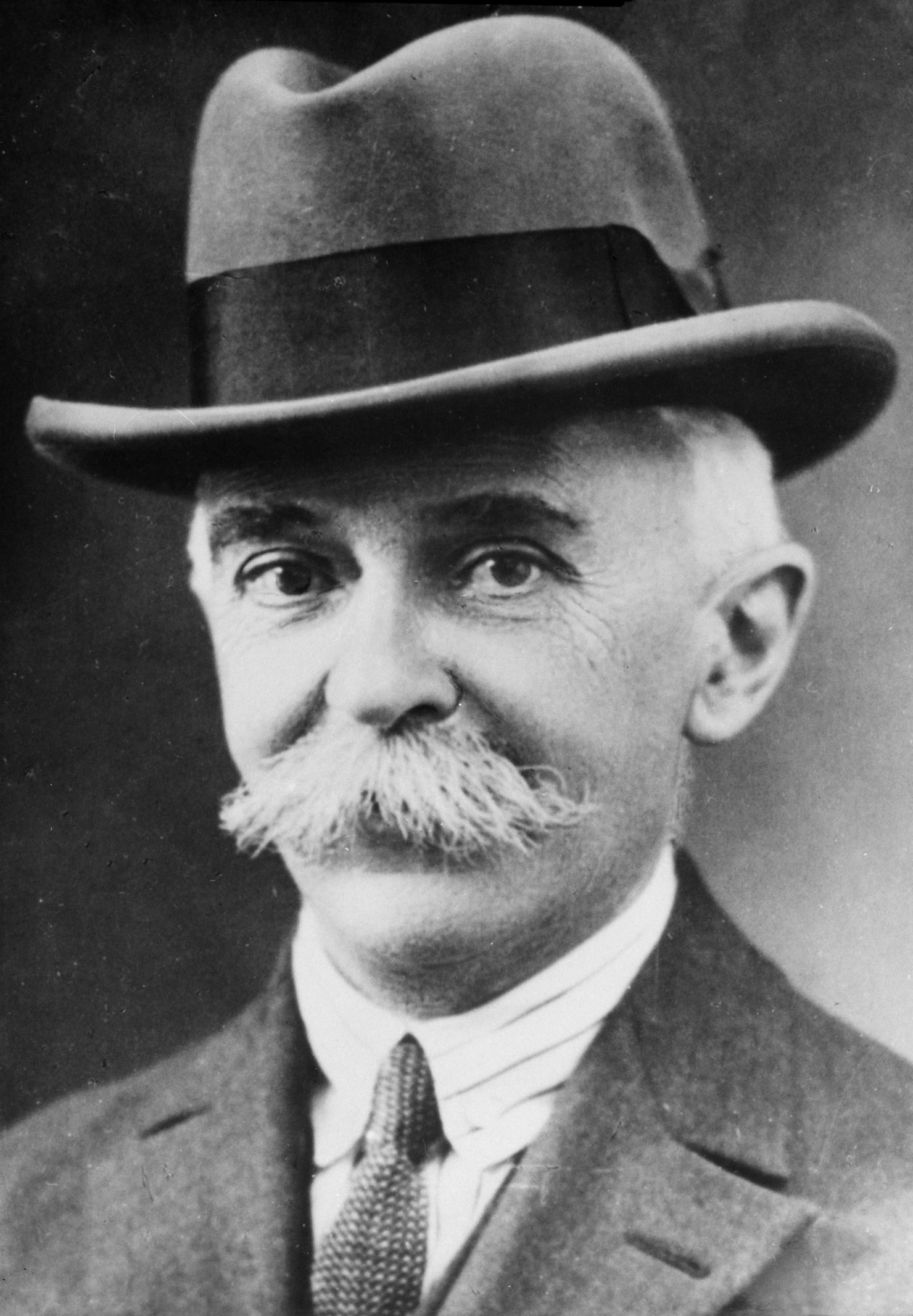
President of the International Olympic Committee:
The 1906 Summer Olympics revived the momentum, and the Olympic Games have come to be regarded as the world’s foremost sports competition.Coubertin created the modern pentathlon for the 1912 Olympics, and subsequently stepped down from his IOC presidency after the 1924 Olympics in Paris, which proved much more successful than the first attempt in that city in 1900. He was succeeded as president, in 1925, by Belgian Henri de Baillet-Latour.
Mythology:
The name derives from Greek words for "five competitions". The event proved popular and lent itself to illustrations on pottery. It also featured in Greek mythology; the mythical hero Perseus fulfilled an oracle's prophecy by accidentally killing Acrisius with a discus while competing in the pentathlon.In mythology, Jason is credited with inventing the pentathlon, and he declared his friend Peleus the first winner of the event, after his victory in the wrestling.
First women's event:
Modern pentathlon has been on the Olympic program continuously since 1912. A women's event was not included until the 2000 Games.
First Competed:
Men-At Stockholm 1912, a young American lieutenant finished 5th in the modern pentathlon competition - he who would go on to become the famous General George S Patton
Women-Women first competed in modern pentathlon at the Olympic Games at Sydney 2000, where Great Britain's Stephanie Cook won gold
Governing Bodies
Union Internationale de Pentathlon Moderne(UIPM)
The International Modern Pentathlon Union (French: Union Internationale de Pentathlon Moderne), UIPM, is the international governing body of Modern pentathlon. Its headquarters are in Monte-Carlo, Monaco.Modern Pentathlon was introduced at the 5th Olympiad in Stockholm (SWE) 1912, comprising the contemporary sports of pistol shooting, fencing, swimming, horse riding and running, which embraced the spirit of its ancient counterpart
The Greek Olympic Games Pentathlon:
The Pentathlon (consisting of running the length of the stadium, jumping, throwing the spear, throwing the discus and wrestling) was introduced for the first time at the 18th Olympiad in 708 BC and held a position of unique importance in the Games. It was considered to be the climax, with the winner ranked as "Victor Ludorum". Admiration for the Ancient Pentathlon was fully shared by the founder of the Modern Olympics, Baron Pierre de Coubertin and from 1909 he tried to have the event re-introduced into the Olympic programme. Pentathlon's moment came two years later at the 14th session of the International Olympic Committee (IOC) in Budapest (HUN) when, as the Baron stated: "the Holy Ghost of sport illuminated my colleagues and they accepted a competition to which I attach great importance"
The Modern Pentathlon:
Modern Pentathlon was introduced at the 5th Olympiad in Stockholm (SWE) 1912, comprising the contemporary sports of pistol shooting, fencing, swimming, horse riding and running, which embraced the spirit of its ancient counterpart. It was De Coubertin's belief that it would be this event, above all others, that "tested a man's moral qualities as much as his physical resources and skills, producing thereby the ideal, complete athlete."
The Five Events:
- Fencing
- Swimming
- Equestrian
- Combined Event
- National Federations
Modern Pentathlon competitions:
- Olympics Games
- World championships
- World Cup Series
- European championships
Awards Related To Modern Pentathlon
Hungarian Sportspeople of the Year:
Hungarian Sportspeople of the Year awards are granted each year since 1958, with categories for sportsmen, sportswomen, teams, coaches (since 1985) and presidents (since 1995).
UIPM Awards:
- Athlete of the Year
- Men’s senior
- Women’s senior
- Men’s junior
- Women’s junior
- Best Modern Pentathlon Team
- Coach of the Year
- Best Contribution
- Fair Play Award
- Best Overall Competition
- Best-Promoted Competition
- Best New Competition
Sample Documents Of Modern Pentathlon
-Lance Armstrong



